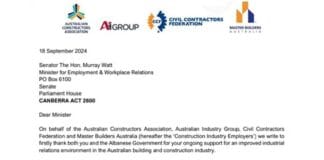The Your Rights at Work campaign mobilised thousands of unionists to campaign against the Howard government and its vicious Workchoices laws. Yet over six months into the Rudd government’s term, unions are still constrained by Howard’s laws.
Rather than “tearing up” Workchoices the new government is drawing up new laws. One thing is certain—Labor is not going to restore the position before WorkChoices was introduced. Much of what Rudd and Gillard are offering is worse than the earlier Liberal law, the Workplace Relations Act.
Prior to the Workplace Relations Act, the previous Labor government had undermined key elements of union organisation with enterprise bargaining, dividing workers industry-by-industry and enterprise-by-enterprise. The campaign against WorkChoices needs to be revitalised and Rudd needs to know that we expect change—and that we are prepared to fight for it.
Howard’s attacks
It is worth remembering the extent of Howard’s attacks on workers and the union movement.
Howard introduced Australian Workplace Agreements (AWAs—individual contracts) and undermined the award system. He put extensive restrictions on union officials’ rights to visit members at work, and the right to strike was limited to certified agreement bargaining periods. Workers could be penalised harshly for taking minimal industrial action. Secret ballots were introduced to discourage industrial action and the right to take political strike action was outlawed.
Importantly “pattern-bargaining”, where unionists in different workplaces could co-ordinate their action, was outlawed. This is how many workers in the construction and manufacturing industries won the 36-hour week. Underpinning this were was the Liberals’ removal of unfair dismissal laws, making it easier for bosses to sack workers.
Most importantly one section of the union movement was targeted for special treatment. Howard set up the Office of the Australian Building and Construction Commission (ABCC), a secretive semi-police organisation that has been monitoring and harassing unionists in the building industry since 2005.
Around 90 unionists have been called in for questioning so far. If they refuse to give information, they are liable for up to six months jail.
The Senate
With the changeover of the Senate on July 1 the Liberal-National Coalition will no longer have a majority. Labor passed legislation outlawing AWAs through the old Senate in March. Further legislation will be introduced after the new Senate begins sitting in August to bring in Labor’s 10 minimum employment standards and set the rules for the new Fair Work Australia body.
But the new Senate does not give Labor a majority, even with support of the Greens. The Senate will be controlled by two right-wing politicians, Family First’s Steve Fielding and independent Nick Xenophon. Neither of them can be relied on to support workers’ rights.
Some union leaders point to this and say that Labor is hamstrung. This is a mistaken view. As Victorian manufacturing workers union printing division secretary Lorraine Cassin told Solidarity: “There is debate behind the scenes, employer associations are putting pressure on the ALP as well as the union movement. What laws we end up with depends on who can put on the most pressure.”
The Rights at Work campaign
Rudd’s failure to overturn WorkChoices does not simply mean the government is slow to respond to union demands. The problem is that they are more prepared to negotiate with employers than with unionists.
Kevin Rudd showed his feelings towards unionists in the lead up to the election when he publicly forced two leading unionists out of the party—Victorian Electrical Trades Union secretary Dean Mighell and Western Australian CFMEU construction assistant state secretary Joe Macdonald.
The peak union body, the Australian Council of Trade Unions (ACTU) have been treading ever so softly around the issue. They know that the majority of unionists expect that industrial relations should improve under Labor. The ACTU is preparing TV ads but has not kept the Rights at Work campaign mobilised.
They are wrong to wind down the struggle. We need more visible action by unions. At last unions in Victoria have decided to take action over the treatment of Noel Washington and continuation of the construction commission. This provides a real focus for unionists to begin to demand the scrapping of WorkChoices in its entirety.
By Judy McVey





